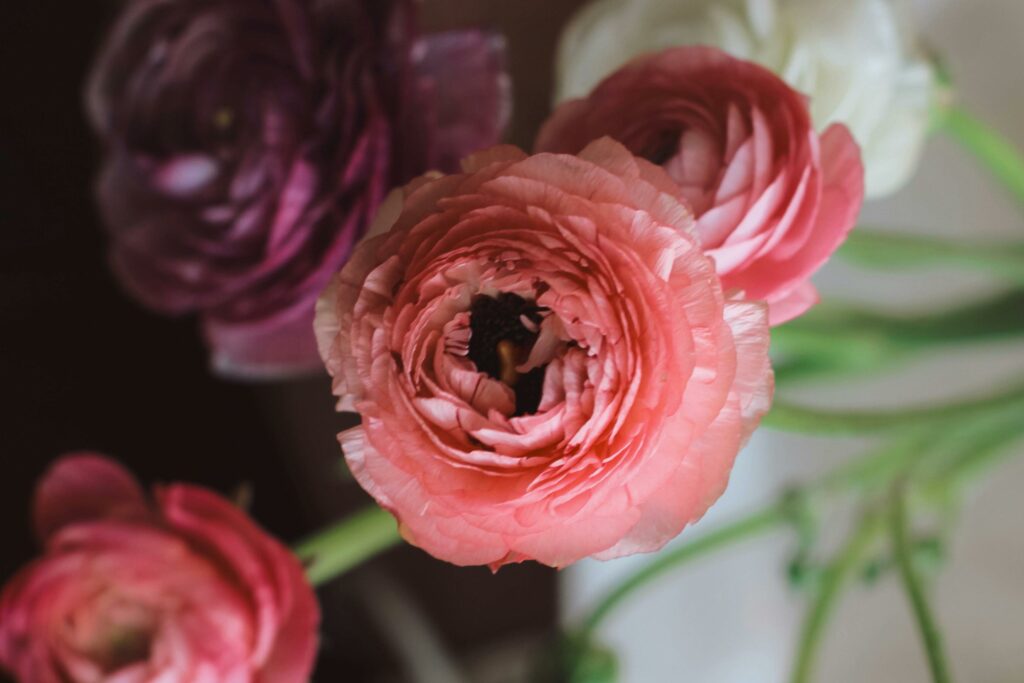Here is a detailed cultural guide to the best flowers for wedding anniversaries—exploring their symbolism, traditional meanings, and etiquette across different cultures. The guide also includes suggestions by milestone years and colors, ensuring the bouquet you choose conveys the right emotion and respect.
1. Western Traditions (Europe, North America, Australia)
Symbolism:
In Western cultures, anniversaries celebrate enduring love, partnership, and devotion. Each milestone year has traditional flowers associated with it, and color symbolism often reflects stages of a relationship—from early romance to mature companionship.
Recommended Flowers by Milestone:
- 1st Anniversary – Carnation: Represents youthful love and commitment.
- 5th Anniversary – Daisy: Symbolizes loyalty, purity, and innocence.
- 10th Anniversary – Daffodil: Marks renewal and joy in a lasting bond.
- 25th Anniversary – Iris or Silver Rose: Associated with faith, hope, and wisdom.
- 50th Anniversary – Yellow Rose or Violet: Represent enduring friendship and fidelity.
Other Suitable Flowers:
- Roses: Timeless symbols of love; red for passion, white for purity, pink for gratitude.
- Tulips: Represent perfect love and renewal, ideal for any stage.
- Lilies: Express deep devotion and purity, often used for milestone celebrations.
Etiquette:
Modern Western couples often choose the recipient’s favorite blooms or color palette, while traditionalists select flowers matching the anniversary year. Arrangements for milestone anniversaries (25th, 50th, etc.) often include metallic accents—silver or gold ribbons—to signify the occasion.
2. East Asian Traditions (China, Japan, Korea)
China
Symbolism:
Flowers for anniversaries are chosen for auspicious meanings—longevity, prosperity, and harmony. Red and gold remain the most celebrated colors for expressing lasting love.
Recommended Flowers:
- Peony: The “king of flowers,” representing marital bliss, wealth, and honor.
- Orchid: Symbol of refinement, fidelity, and harmony between partners.
- Lotus: Signifies purity and enduring connection despite life’s challenges.
- Chrysanthemum: Symbolizes longevity and stable happiness.
Etiquette:
Avoid white or purely yellow arrangements, as these are associated with funerals. Pair flowers with red wrapping or decorative knots for auspicious presentation.
Japan
Symbolism:
Japanese anniversary flowers focus on simplicity, sincerity, and the subtle beauty of enduring affection.
Recommended Flowers:
- Cherry Blossom (Sakura): Evokes renewal and appreciation for fleeting beauty in long-term love.
- Camellia (Tsubaki): Symbolizes eternal devotion and mutual respect.
- Hydrangea (Ajisai): Represents heartfelt emotion and gratitude.
- Chrysanthemum: A flower of longevity and happiness.
Etiquette:
Choose understated arrangements, often inspired by ikebana principles. Couples may gift flowers with small handwritten notes expressing gratitude rather than overt romantic messages.
Korea
Symbolism:
Korean culture values harmony and dedication in marriage. Anniversary flowers often emphasize gratitude and family unity.
Recommended Flowers:
- Roses (pink or red): Represent affection and enduring love.
- Lilies: Denote purity and faithfulness.
- Peonies: Symbolize honor and happiness in a long marriage.
Etiquette:
It is common to give flowers alongside gifts such as jewelry or traditional items like hanbok fabric or ceramics.
3. South Asian Traditions (India, Sri Lanka, Nepal)
Symbolism:
Marriage is viewed as a sacred bond blessed by divine energy. Anniversary flowers often carry spiritual meanings tied to devotion, balance, and prosperity.
Recommended Flowers:
- Jasmine: Symbol of divine love and sensuality.
- Lotus: Represents purity, enlightenment, and spiritual union.
- Marigold: Symbolizes joy, good fortune, and auspicious blessings.
- Rose (especially red or pink): Associated with romance and devotion.
Etiquette:
Avoid white-only arrangements, as white is associated with mourning. Couples often include fragrant garlands or temple-style floral arrangements to mark milestone anniversaries.
4. Middle Eastern Traditions (Arab States, Turkey, Iran)
Symbolism:
Flowers express admiration, beauty, and divine love. Romantic gestures are often poetic and symbolic rather than overt.
Recommended Flowers:
- Roses: Especially red and white varieties, representing love and purity.
- Tulips: Deeply symbolic in Persian and Turkish cultures—representing perfect love and paradise.
- Jasmine: Associated with grace and eternal affection.
- Lilies: Signify devotion and sincerity.
Etiquette:
Elegant arrangements with moderate fragrance are preferred. Presentation matters—simple, refined bouquets in crystal vases or wrapped in silk convey respect and sophistication.
5. Latin American Traditions (Mexico, Brazil, Argentina)
Symbolism:
Anniversaries are lively, communal celebrations, and flowers express passion, joy, and gratitude.
Recommended Flowers:
- Red Roses: Represent passionate, enduring love.
- Orchids: Symbolize beauty and sophistication.
- Sunflowers: Represent loyalty and optimism.
- Carnations: Convey admiration and affection.
Etiquette:
Bright, vibrant arrangements are appropriate. Combining red and white flowers symbolizes unity and harmony within a marriage.
6. African Traditions (Sub-Saharan and North African Contexts)
Symbolism:
Flowers celebrate continuity, family, and strength of love through life’s changes.
Recommended Flowers:
- Protea: Represents resilience, courage, and transformation—ideal for milestone anniversaries.
- Bird of Paradise: Symbolizes joy and freedom in love.
- Roses: Universally symbolize affection and unity.
Etiquette:
Colorful, bold arrangements with greenery reflect abundance and vitality. Avoid arrangements that appear somber or monochromatic.
7. Modern and Multicultural Couples
For couples from diverse backgrounds or those who prefer contemporary styles:
- Orchids, tulips, or lilies are universally elegant and symbolic of love and balance.
- Neutral color palettes (white, blush, peach, lavender) suit all cultural settings.
- Personalization—choosing a flower significant to the couple’s story or wedding bouquet—adds emotional depth.
Summary Table
| Region | Symbolism | Recommended Flowers | Avoid |
|---|---|---|---|
| Western | Enduring love, devotion | Roses, tulips, daisies, lilies | Overly scented or artificial flowers |
| East Asia | Harmony, longevity | Peony, orchid, lotus, chrysanthemum | White or somber tones |
| South Asia | Blessing, spiritual love | Jasmine, lotus, marigold, rose | White-only arrangements |
| Middle East | Beauty, divine love | Roses, tulips, jasmine, lily | Strongly perfumed or excessive displays |
| Latin America | Passion, joy | Roses, orchids, sunflowers, carnations | None, if vibrant |
| Africa | Strength, vitality | Protea, bird of paradise, roses | Monochromatic bouquets |

